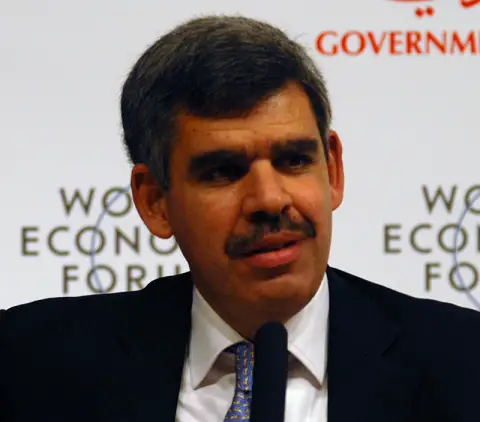Economist Mohamed El-Erian is warning that while many tend to see economic changes as temporary, and easily reversible, one should not view the current economic climate in those terms. He maintains this will not be simply another recession, but rather it is going to be a profound and transformation economic and financial shift, and investors should prepare for that.
As the chief economic advisor at Allianz, and the previous CEO of PIMCO, the highly influential bond market investment management firm, his views hold considerable weight among many investors.
In a recent commentary for Foreign Affairs magazine, he wrote that pressures on supply, central bank tightening, and market “fragility” were all combining to produce uniquely dangerous downward pressures on global economic growth.
He wrote, “Three new trends in particular hint at such a transformation and are likely to play an important role in shaping economic outcomes over the next few years: the shift from insufficient demand to insufficient supply as a major multi-year drag on growth, the end of boundless liquidity from central banks, and the increasing fragility of financial markets.”
He went on, “These shifts help explain many of the unusual economic developments of the last few years, and they are likely to drive even more uncertainty in the future as shocks grow more frequent and more violent.”
He continued to warn that individuals, companies, and governments would all be affected by these changes, socially, economically, and politically.
In his piece he singled out the US Federal Reserve for special criticism, for being too slow to detect the rapidly rising inflation infecting the US economy, as well as acting too harshly by raising rates at too fast a pace, in an effort to make up for their delay in acting.
He also noted that for a considerable period, as central banks maintained interest rates at or near zero, markets became conditioned to expect free and easy money from central banks, and that created the “perverse effect” of “a significant chunk of global financial activity” flooding into asset management, hedge funds, private equity, and other less regulated entities.
Now as interest rates rise, markets will encounter yet another stress that they are unaccustomed to, as those entities exit positions and withdraw capital, and add further downward pressures on the global economy.
Photo of Mohamed El-Erian courtesy Wikipedia

